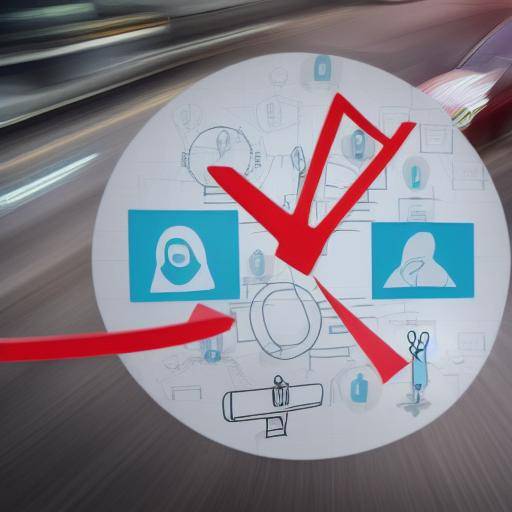
In today's society, self-evaluation has become a key tool for managing exhaustion and promoting emotional well-being. Throughout this article, we will explore in depth the importance of self-assessment, its impact on the management of exhaustion and how it influences emotional well-being. From its historical origins to future trends, we will analyze the benefits, challenges, best practices, comparisons and case studies, providing a comprehensive analysis supported by insights from industry experts.
Introduction
Depletion, a result of chronic stress in the labor or personal sphere, can affect both physical and mental health. Self-assessment, which involves reflecting on oneself, can be a powerful tool to identify early signs of exhaustion, manage stress and improve emotional well-being. In this introductory section, we will explore the impact of self-evaluation on the management of exhaustion and its contribution to emotional well-being, highlighting its relevance today.
Self-evaluation is a process of reflection and analysis on our own actions, behaviors and emotions. It allows us to honestly evaluate our strengths, weaknesses, aspirations and areas of development. By applying self-assessment to the context of exhaustion, people can recognize behavior patterns, identify triggering factors and take proactive measures for their self-care. Self-assessment also contributes to the development of emotional intelligence, strengthening the ability to manage stress, regulate emotions and promote a healthy emotional balance.
History and background
To understand the current importance of self-assessment in the management of exhaustion, it is essential to explore its historical roots and evolution over time. Self-assessment has been a concept rooted in different philosophical and educational traditions, such as the knowledge of oneself promoted by Greek philosophers such as Socrates, the introspection in William James' psychology, and the self-assessment approach in Carl Rogers' humanist theory.
In the modern era, self-evaluation has gained greater relevance with the emergence of psychological approaches such as cognitive-behavioral therapy, which promotes self-evaluation as a tool for changing dysfunctional thoughts and behaviors. This approach has permeated not only the clinical sphere, but also the business sphere, where self-evaluation has become a common practice for the development of leadership, performance management and well-being.
In-depth analysis
Self-assessment, in the context of exhaustion, offers a multitude of benefits, including early identification of signs of stress, the promotion of self-reflection and the promotion of resilience. However, it also presents challenges, such as the need to avoid excessive self-criticism or overvaluation of capacities.
Current self-assessment trends for exhaustion management include the use of digital tools, such as emotions tracking and personal journals, which facilitate the registration and analysis of behavior patterns. In addition, the integration of self-assessment into work well-being programs and training in coping skills is gaining popularity in corporate environments.
Full review
The effective integration of self-assessment in the management of exhaustion requires a holistic approach that encompasses the personal and labour sphere. Organizational welfare programs that include self-assessment sessions, mindfulness practices and personal development activities have shown positive impacts on reducing exhaustion and improving the emotional well-being of employees.
Self-assessment not only provides individual benefits, but can also positively impact organizational culture by fostering transparency, open communication and empathy among working teams. In addition, by effectively identifying and addressing exhaustion, organizations can mitigate job absenteeism, improve productivity and promote a healthy and sustainable working environment.
Comparative analysis
It is important to note that self-evaluation, exhaustion and emotional well-being are intrinsically interconnected. While self-evaluation acts as a tool for the identification and management of exhaustion, emotional well-being arises as a desired result of this process. Self-assessment, compared to other exhaustion management strategies, offers a unique perspective by empowering people to take control of their well-being and generate significant changes in their personal and working lives.
Practical advice and actionable recommendations
To effectively integrate self-assessment in the management of exhaustion, it is essential to adopt self-care practices that promote balance and resilience. Some practical tips include regular practice of full care or mindfulness, setting healthy limits at work and at home, seeking social support and developing skills to identify and manage stress.
In addition, organizations can implement training programs on coping skills, provide resources for stress management and create an environment that supports honest openness and communication about employee emotional well-being.
Industry ideas and expert opinions
Industry experts emphasize the importance of self-assessment in the prevention and management of exhaustion. They recommend that organizations incorporate regular depletion assessments into their human resources management practices in order to proactively identify warning signals and support employees.
The experts also emphasize the need to promote a culture of self-care and authenticity in the workplace, where employees feel safe when expressing their concerns and receiving the necessary support. Self-evaluation, supported by an open and comprehensive organizational culture, plays a key role in promoting a healthy working environment and in preventing exhaustion.
Case studies and real applications
Several case studies illustrate the effectiveness of the periodic evaluation of exhaustion in working environments, where there has been a significant decline in stress levels and an improvement in the emotional well-being of employees. These cases show how self-assessment, being strategically integrated into exhaustion management, can generate tangible benefits for both individuals and organizations.
Future trends and predictions
As awareness of the importance of emotional well-being in the workplace continues to grow, the practice of self-assessment for the management of exhaustion is expected to be expanded and more systematically integrated into labour welfare policies and programmes. Predictions point to a more proactive approach to the management of exhaustion, which prioritizes prevention and continued support rather than reactive intervention.
In addition, technology is expected to play a crucial role in promoting self-assessment, with the development of increasingly sophisticated digital tools for monitoring and managing emotional well-being. Artificial intelligence and data analysis could provide new perspectives on the relationship between self-assessment, exhaustion and job performance, reporting more effective strategies to address these challenges.
Conclusions
In short, self-evaluation plays a key role in managing exhaustion and promoting emotional well-being, both individually and organizationally. By facilitating conscious reflection and identifying triggers, self-assessment allows people to take proactive measures to mitigate exhaustion and strengthen their emotional well-being. Its positive impact extends to the dynamics of organizations, where it can contribute to the creation of healthier and more sustainable working environments.
Frequently asked questions
How can I start practicing self-assessment to manage exhaustion?
Self-assessment can begin with daily reflection on your emotions, behaviors and stress levels. There are also tools and resources, such as emotions journals and welfare assessment questionnaires, which can facilitate this process.
What are the early warning signs of exhaustion that I should look for in my self-assessment?
Some early warning signs of exhaustion include constant fatigue, difficulty concentrating, sleep disturbances, irritability and lack of motivation. Being attentive to these indicators can help you identify the need to intervene on time.
What is the importance of self-evaluation in the working context?
Self-assessment in the workplace is crucial to detecting employee depletion and providing the necessary support. It also helps organizations to better understand the needs of their partners and create healthier working environments.
How can self-evaluation impact my emotional well-being?
Self-assessment can positively impact your emotional well-being by raising awareness of your emotions and thoughts, allowing you to effectively identify and address the sources of stress, thereby strengthening your emotional resilience.
Are there recommended digital tools for self-assessment of exhaustion?
Yes, there are numerous digital applications and tools designed for the self-assessment of exhaustion, ranging from emotions journals to welfare tracking applications. It is important to choose a tool that suits your needs and preferences.
How can self-evaluation benefit organizations in the management of labour exhaustion?
Self-assessment can benefit organizations by allowing early identification of employee exhaustion, which gives them the opportunity to implement proactive and long-term support measures to promote a healthier and productive working environment.
With this, we conclude this thorough exploration of the impact of self-assessment on the management of exhaustion and the promotion of emotional well-being. By adopting conscious and proactive self-assessment practices, both individually and corporately, we can move towards healthier and more satisfying environments, where exhaustion is addressed with empathy and understanding.
Remember that self-evaluation is a powerful tool that can significantly contribute to your emotional well-being and effective exhaustion management.






















































